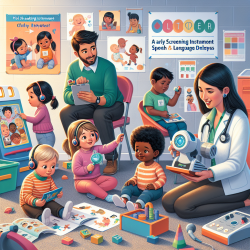The journey of an Alzheimer's patient is often fraught with challenges that extend beyond the clinical setting. Recent research, "Understanding Barriers Along the Patient Journey in Alzheimer’s Disease Using Social Media Data," highlights how social media can serve as a powerful tool to identify and address these barriers, ultimately improving the patient journey.
The Power of Social Media in Healthcare
Social media platforms offer a unique lens into the real-world experiences of patients, caregivers, and clinicians. By analyzing over 225,977 posts from various stakeholders, researchers have identified key barriers in the Alzheimer's patient journey. These insights can help practitioners develop strategies to enhance care delivery and patient support.
Key Barriers Identified
- Anxiety and Resistance to Care: A significant barrier identified was the unwillingness or resistance to seeking care, often due to stigma or lack of awareness. This reluctance was prevalent across all stakeholder groups.
- Structural Barriers: Issues such as affordability, geographic limitations, and lack of transportation were common themes in patient and caregiver posts. These factors often hinder timely access to necessary healthcare services.
- Treatment Concerns: Many stakeholders expressed concerns about the effectiveness and safety of available treatments, highlighting a need for more effective therapeutic options.
Implementing Research Insights
The findings from this study underscore the importance of addressing both psychological and structural barriers in Alzheimer's care. Practitioners can take several steps to leverage these insights:
- Cultivate Open Communication: Encourage open dialogues with patients and caregivers about their concerns and experiences. This can help reduce stigma and increase willingness to seek care.
- Enhance Accessibility: Work with community resources to improve transportation options and reduce geographic barriers to care.
- Evolve Treatment Approaches: Stay informed about emerging therapies and advocate for comprehensive treatment plans that address both cognitive and behavioral symptoms.
- Utilize Social Media: Engage with online communities to gain further insights into patient experiences and use this information to inform practice improvements.
The Path Forward
This research highlights the potential of social media as a valuable resource for understanding patient journeys in Alzheimer's disease. By integrating these insights into clinical practice, practitioners can better support patients and caregivers, ultimately enhancing the quality of care provided.
If you're interested in delving deeper into this research, you can access the original paper Understanding Barriers Along the Patient Journey in Alzheimer’s Disease Using Social Media Data.










